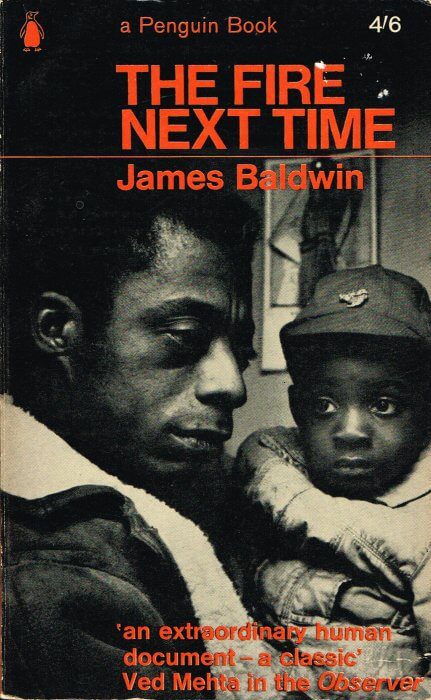The Fire Next Time by James Baldwin
"The Fire Next Time" by James Baldwin is a reflection on race relations in America in 1963, argues that the history of America is suppression of the humanity of black people by white people and their fear of black people is rooted in their guilt and insecurity.

Our pastoral staff team is currently reading "The Fire Next Time" by James Baldwin. Each month, a member of the team recommends a book for the team to read. This was my recommendation for February, and it will be my fourth time reading this powerful work. My only regret is that I didn't discover this book earlier in life, but I am grateful to have it now. Every time I read it, I learn something new, see something new, and hear something new.
The book is divided into two essays: "My Dungeon Shook: Letter to my Nephew on the One Hundredth Anniversary of the Emancipation" and "Down at the Cross: Letter from a Region of My Mind." In the first essay, Baldwin addresses his nephew and reflects on the history of Black Americans and the ongoing oppression they experience. He describes the deep-seated racism that still exists in America and the impact it has on Black people and their communities. He emphasizes the importance of understanding and acknowledging the past to move forward and create a more just and equal society.
In the second essay, Baldwin explores his own experiences growing up in a religious community in Harlem. He reflects on the hypocrisy of white-dominated churches and how religion has been used to justify racism and oppression. He also writes about the complexities of race and identity and the ways in which Black Americans have been denied full humanity and dignity while being forced to assimilate to whiteness.
Baldwin argues that the Civil Rights Movement is important but not enough to solve the problem of racism in America. He writes that "we cannot be free until they are free," and that white people must come to terms with their responsibility and guilt in perpetuating a racist society. He asserts that true progress towards racial equality cannot be achieved until this work has been done.
In the book, Baldwin also touches on the idea of love, and how it relates to the racial situation in America. He says, “If the concept of God has any validity or any use, it can only be to make us larger, freer, and more loving. If God cannot do this, then it is time we got rid of Him.” which expresses Baldwin's belief that religion should serve a practical purpose in promoting human growth and progress. He believes that religious faith should inspire people to be better, more compassionate, and more understanding towards others, and should not be used as a tool of oppression or division. This view of God led Baldwin to reject what he describes as the "white man's" god. Here it feels like Baldwin is addressing the current rise in White Christian Nationalism.
As I reflect on Baldwin and White Christian nationalism, it's clear to see why nationalism, of course, makes sense. It really does. It's just a collective understanding of existence. Put another way, it is communion without God. If we want to be free, powerful, united, and feared, nationalism is the way to go. It is almost impossible for us not to see the world as a collection of nations, nation-states, and people who are not nations yet but who are on their way to becoming nations. Why? Because hidden in the nation-state and the nationalism that it produces is the promise of security, freedom, independence, and self-determination. When you read scripture through the lens of nationalism, it distorts and taints what you read. It forces you to remake God in your own image to help you achieve your goals. This was true for Baldwin, as it is today.
"The Fire Next Time" is thought-provoking and powerful, and does a great job of revealing the state of race relations in America. This book challenges us, its readers, to confront our own biases and prejudices and encourages us to actively work towards understanding and loving one another. If you haven't read it yet, it's definitely worth a read. This important and relevant piece of literature continues to play a crucial role in the ongoing struggle for racial equality and social justice in America and the world.